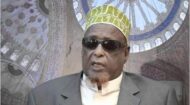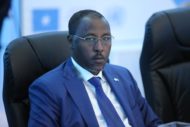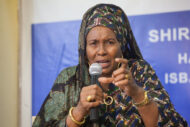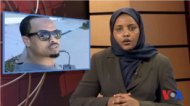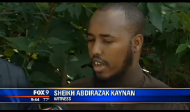April 13, 2012
This post is also available in: Arabic
A breeze so hot that it feels solid and the sweet smell of aviation fuel will be my last impression of Khartoum when I leave next week. Leaving is never easy. But for a diplomat it is a part of life. For many others in Sudan the experience is traumatic.
As I write Southern Sudanese have become foreigners in what used to be their own land. Nine months after Southern secession on 9 July 2011, I have the luxury of feeling sweet sorrow at parting. Tens or hundreds of thousands of Southerners have no such luxury. Difficult choices, a hard road and an uncertain feature are the fate of many who are told they are Sudanese no more.
I believe few in Khartoum share the extreme and hate-inspiring views expressed in one of the daily newspapers here – certainly not those I have the pleasure to meet and work with. For them Sudanese hospitality is shown not only when people arrive, it continues to the moment they leave.
In the Embassy our Sudanese colleagues organised a party last week for their departing Southern colleagues. This kind of event has happened all over Sudan. Warm words mix with a certain shared disbelief – can this really be happening? Fortunately Sudan’s national insurance system is robust and dispassionate. It is an exemplar to many developing countries: it has repaid in full to all our departing Embassy colleagues their years of contributions. So those going south have at least something to use to start their new lives.
During just less than two years in Khartoum, my life and work has been dominated by change: the referendum in January 2011, independence in July and the wrangling and conflict that has ensued; revolutions in Egypt, Libya, Tunisia, Yemen and Syria and their possible impact in Sudan; the downward turn in Sudan’s economy and the effects on ordinary people; the change of Sudan’s government that shifted – or not – the kaleidoscope.
In a time of change, consistency matters. I have tried my best to communicate how the UK Government sees things in Sudan and what our policy is. Some have criticised my openness. But others have welcomed it. As I often explain, foreign policy is not the possession of a privileged few. In the twenty first century relations between countries are so much more than what happens in closed rooms between officials and diplomats. Some business does require confidentiality and discretion. But most doesn’t. Ask me what the UK is trying to do in Sudan and I will tell you: build peace and reduce poverty.
Our Ministers have been very clear about the hallmarks of UK engagement here – it is long-term, and growing rather than reducing; it is scrupulously even-handed when it comes to Sudan and South Sudan (we want both to be stable and viable states), it is founded on the principle of a supporting partnership (we want to work with and through Sudanese institutions as much as possible), and it is focused on the need to change now in order to be ready for the future.
Huge economic, social and political challenges are coming down the track. The future has already started. Sudan is young, urban and under-employed in a way it wasn’t a few years ago. That trend is growing not reducing. History and current events across the region show that the way to cope with such challenge is to empower the people – economically and politically. Fully accountable and representative government, the rule of law and an attractive trade and investment climate are proven to work.
Our Embassy’s work focuses on the future – the next generation and the next elections (see our website UK in Sudan for more details of our projects and programmes). But we also engage on the here and now, supporting President Mbeki’s relentless search for peace in the region, helping the Government of Sudan and Professor Gambari to heal Darfur’s wounds and encouraging economic reform and growth to give people jobs (the last available figures show UK-Sudan trade increased 20% in 2010; investment is also starting -on Sunday I attended the opening of a new pharmaceutical factory owned by a UK PLC).
Departing Ambassadors are frequently asked if they are optimistic. I always say I am – Sudan has so much in its favour that I am sure in years to come it will play the full and positive role it should as Africa’s third largest nation, blessed with natural and human resources, rich in diversity and strong in its unique Afro-Arab identity. But always as I say this, my heart is in my mouth. This will be the future, I am sure. But what lies between here and there? My fear is that change may come to Sudan messily, violently and in a way that destabilises the country and region. It does not need to be that way. Managed change can still succeed.
But it needs to start now. It is for Sudan’s leaders and people to determine their future. My parting wish is that they choose to open genuine political space and dialogue, to harness talent and not repress dissent, to be strong as a country, but not brutal. And where there is war, as in Southern Kordofan and Blue Nile State, the real aim should be to end it – not win it.
Since writing this, South Sudanese forces have occupied Heglig. The AU has called for immediate and unconditional withdrawal. The UK has added its voice to that call. Dark days. Once again restraint and leadership is needed. I urge both Presidents to listen to President Thabo Mbeki. Let the African Union lead them to stability and peace.
My thanks to the Sudanese for their gracious hospitality. Ma’a salama.

 All Posts
All Posts

